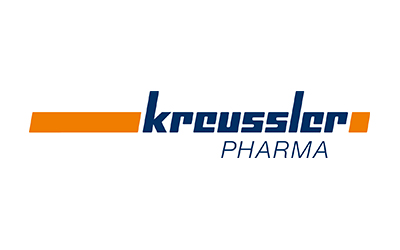28th Berlin Prophylaxis Day
Friday, 06.12.2024 – With accompanying dental exhibition

Medical history – why is it so important?
The aim is to ensure that all points on the medical history are understood and can be classified correctly. The connections between diseases and dentistry are explained and what you need to pay attention to during prophylaxis.
register now!The aim is to ensure that all points on the medical history are understood and can be classified correctly. The connections between diseases and dentistry are explained and what you need to pay attention to during prophylaxis.
FZÄ Melanie Maus

- 1998 – 2001 Apprenticeship as IT systems administrator
- 2001 – 2002 Commercial employee
- 2002 – 2014 System administrator
- 2012 – 2014 Student assistant, Charité Berlin
- 2014 – 2015 Preparatory assistant in dental practice
- 2015 – 2018 Dentist
- 2018 – 2022 Medical Adviser
- 2018 – 2022 Specialist dentist for oral surgery/senior physician
Prophylaxis session – the successful path to dental health
Description of the process of PMPR (professional medical plaque reduction) according to the latest findings:
- From welcoming to saying goodbye to patients
- Why is a medical history important and what should it contain?
- Which indices can be used sensibly?
- How does biofilm management differ from tried and tested methods?
- Which materials, which devices and which instruments can be used?
- What does oral hygiene advice involve and how do I motivate patients to implement it at home?
Description of the process of PMPR (professional medical plaque reduction) according to the latest findings:
What does oral hygiene advice involve and how do I motivate patients to implement it at home?
From welcoming to saying goodbye to patients
Why is a medical history important and what should it contain?
Which indices can be used sensibly?
How does biofilm management differ from tried and tested methods?
Which materials, which devices and which instruments can be used?
Dr. med. dent. Patrick Mohr

- Study of dentistry and doctorate in Marburg
- 3 years as a preparatory assistant in 2 practices in Hanover
- Over 25 years in own practice near Hamburg with dedicated prophylaxis department (active until the end of 2023)
- Employee and consultant at the Philipp Pfaff Institute from the end of 2023
Mucositis and peri-implantitis – what role does oral hygiene play?
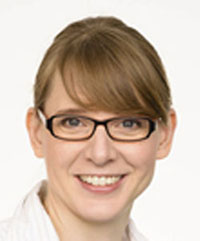
The treatment of mucositis and peri-implantitis is difficult and unfortunately not always successful. An important component in the treatment of peri-implant infections is the reduction of biofilm. The practice team has various methods at its disposal – from brushing and flossing to various instruments and the use of air-powder water jet devices.
Start with prophylaxis before implant placement and make your patients aware of the special needs of implants.
Accepting the challenge together!
register now!The treatment of mucositis and peri-implantitis is difficult and unfortunately not always successful. An important component in the treatment of peri-implant infections is the reduction of biofilm. The practice team has various methods at its disposal for this – from brushing and flossing to various instruments and the use of air-powder water jet devices.
Start with prophylaxis before implant placement and make your patients aware of the special needs of implants.
Accepting the challenge together!
Dr. Nina Werner

- 1999 – 2004 Studied dentistry at the Humboldt University of Berlin
- 2004 License to practice medicine
- 2015 Promotion
- 2005 – 2012 General dental practice, also in own practice in Berlin
- 2013 – 2024 Clinical Director at the Philipp Pfaff Institute
Periodontal hand instruments used correctly – you can’t always “do without” them
Hand instruments as a useful and necessary supplement – where machine instrumentation reaches its limits
We use practical examples to show you how to master even tricky situations in the future.
FZP Stefanie Röder
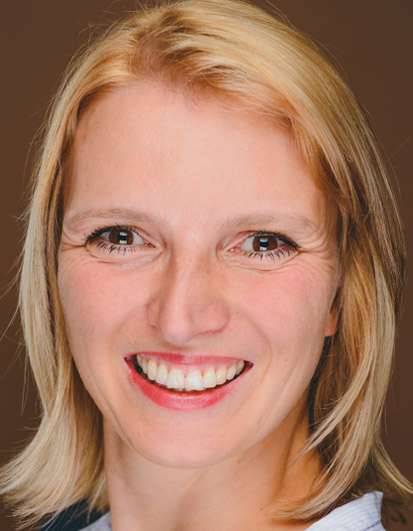
- 2004 – 2007 Training as a ZFA, Berlin
- 2008 Further training in the reprocessing of medical devices
- 2010 – 2011 Further training as a dental administrative assistant (ZMV), Berlin
- 2012 Further training to become a dental prophylaxis assistant (ZMP), Berlin
- 2016 – 2017 Further training as a specialist in dental practice management (FZP), Berlin
- Since 2018 Lecturer in the areas of hygiene, practice organization, quality management, private billing
- 2023 IHK certified specialist in health and social services
Dentist Ellen Oberhoff

- 1983-1988 Studied dentistry at the Charité
- 1988 – 1989 Start of specialist training in pediatric dentistry
- 1990 – 2004 Worked as a dentist in Berlin
- 2005 – 2018 Establishment in a joint dental practice
- Since 2021, course supervision and practical instructor in the advanced training course for dental hygienists and in the preparatory course for the knowledge test for immigrant dentists at PPI
Patient motivation – the art of listening!
A successful and future-oriented practice offers patients a pleasant atmosphere in which they feel comfortable and are happy to return.
Happy, satisfied and motivated patients ensure the profitability of the practice, are loyal and ensure enthusiastic recommendations.
The modern dental practice needs strategies that can be easily implemented in everyday practice life and at the same time inspire the team and patients.
- How can patient satisfaction be ensured in the long term?
- Motivating yourself, patients and the team
- Dealing with special types of patients
A successful and future-oriented practice offers patients a pleasant atmosphere in which they feel comfortable and are happy to return.
Happy, satisfied and motivated patients ensure the profitability of the practice, are loyal and ensure enthusiastic recommendations.
The modern dental practice needs strategies that can be easily implemented in everyday practice life and at the same time inspire the team and patients.
Dealing with special types of patients
How can patient satisfaction be ensured in the long term?
Motivating yourself, patients and the team
DH Nicole Graw
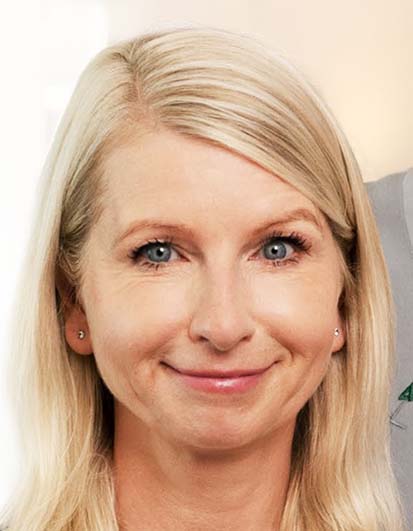
- 1994 – 1997 Training as a ZFA
- 2000 – 2002 Further training as ZMF (eazf Munich)
- 2010 – 2011 Training as a business trainer and coach (V.I.E.L. Coaching)
- 2015 – 2016 Further training as a dental hygienist (NFI Hamburg)
- 2017 NLP Master (DVNLP)
- Since 2014 additional training in communication psychology with Prof. Schulz von Thun
- 2017 – 2021 Teaching and clinical supervision as part of the advanced training to become a ZMP and DH (advanced training institute of the ZÄK Bremen)
- 2018 Further training as a social media manager (IHK)
- Since 2018 Practice management of Zahnärzte Mühlenkamp, foundation of Zahnarzt auf Rädern
- 2020 – 2021 Systemic management training (Coachingakademie Hamburg)
- 2022 – 2023 Dental Business Administrator (German Academy of Continuing Education in the Healthcare Sector)
- Since 2023 Teaching as part of the advanced training for DH (NFI Hamburg)
- 2024 – 2025 Business economist for dental billing
- Many years of experience as a speaker and trainer
All or nothing? Fluorides used correctly!
Use in patients from 1 to 18 years of age
In this workshop, the basics and objectives of the use of fluorides in pediatric dentistry will be discussed again.
The four pillars of healthy teeth form the basic prerequisite for successful child prophylaxis with the appropriate amounts of fluoride. The focus is on age-appropriate fluoridation measures from the outset to prevent caries, taking into account the general effect and effectiveness of fluorides in pediatric dentistry. This is accompanied by a fluoride anamnesis with subsequent calculation of the fluoride concentration in the preparations used.
Participants should after the end of the workshop:
- Know the general effect and mechanisms of action of fluorides.
- Know how fluorides work in the human body.
- Understanding the four pillars of healthy teeth.
- Be able to take a fluoride anamnesis.
- Be able to calculate the fluoride concentration.
- Master the use of fluorides in the appropriate age groups.
Use in patients from 1 to 18 years of age
In this workshop, the basics and objectives of the use of fluorides in pediatric dentistry will be discussed again.
The four pillars of healthy teeth form the basic prerequisite for successful child prophylaxis with the appropriate amounts of fluoride. The focus is on age-appropriate fluoridation measures from the outset to prevent caries, taking into account the general effect and effectiveness of fluorides in pediatric dentistry. This is accompanied by a fluoride anamnesis with subsequent calculation of the fluoride concentration in the preparations used.
Participants should after the end of the workshop:
- Know the general effect and mechanisms of action of fluorides.
- Know how fluorides work in the human body.
- Understanding the four pillars of healthy teeth.
- Be able to take a fluoride anamnesis.
- Be able to calculate the fluoride concentration.
- Master the use of fluorides in the appropriate age groups.
M.-Salim Doueiri
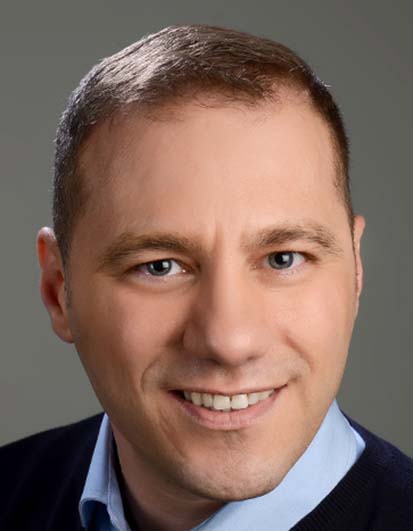
- 1998 – 2002 Study of Biotechnology, Technical University of Applied Sciences Berlin, Degree: Dipl.-Ing.
- 2002 – 2007 Research Specialist at the University of Illinois, Chicago, USA
- 2014 – 2009 Studied dentistry, Charité-Universitätsmedizin Berlin
- 2015 – 2016 Assistant dentist Dentarts practice & Essink practice
- 2016 – 2020 Research Associate, Charité-Universitätsmedizin Berlin, Department of Orthodontics, Orthodontics and Pediatric Dentistry. Work research focus on classical paediatric dentistry and treatment of children with molar incisor hypomineralization
- 2021 – 2022 Freelance pediatric dentist in the MVZ (dental center in Berlin) and in the joint practice Dr. Meyer & Prof. Dr. Preißner
- Since 2022 practice owner of MIH-Zentrum-Berlin with a focus on classic pediatric dentistry and treatment of children with MIH
Billing (GKV) and calculation (GOZ) of prophylaxis services
This workshop aims to train participants in the optimal billing and calculation of prophylaxis services. It will cover the legal principles and specific requirements of the German Dental Fee Schedule (GOZ) as well as practical tips for increasing efficiency and optimizing billing processes.
- Practical exercise and case study
- Basics of billing for prophylaxis services
- Schedule of fees for dentists (GOZ) and relevant paragraphs
- Avoidance of frequent billing errors
- Tips and tricks for maximizing revenue
This workshop aims to train participants in the optimal billing and calculation of prophylaxis services. It will cover the legal principles and specific requirements of the German Dental Fee Schedule (GOZ) as well as practical tips for increasing efficiency and optimizing billing processes.
- Practical exercise and case study
- Basics of billing for prophylaxis services
- Schedule of fees for dentists (GOZ) and relevant paragraphs
- Avoidance of frequent billing errors
- Tips and tricks for maximizing revenue
ZMV Emine Parlak
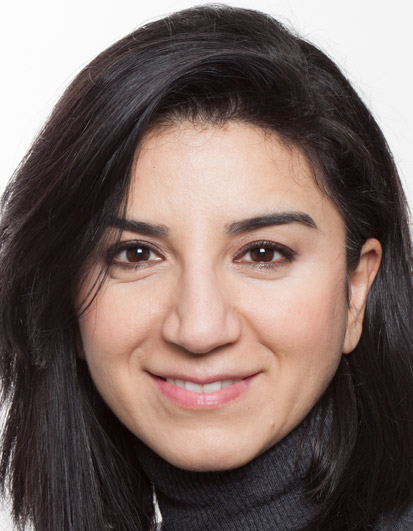
- Dental administrative assistant and practice manager
- Years of experience from various dental practices
- Since 2015 at the Charité Centrum Universitätsmedizin-Berlin for Dentistry, Oral and Maxillofacial Medicine
- Currently Head of the Revenue and Cost Management department
- Consultant in various areas of dental billing and member of the examination board for dental assistants and dental administrative assistants of the ZÄK Berlin
Reaching the goal together – motivating as a team effort!
The course is aimed at prophylaxis professionals who work together as a team to increase their patients’ motivation for oral hygiene.
The focus is on the joint development of strategies for motivation and their implementation in daily practice. Participants learn how to develop a common language and methodology as a team in order to motivate patients effectively. The course teaches techniques for mutual support and communication within the team in order to continuously maintain and pass on motivation.
Another focus is on developing joint motivation programs and adapting them to the individual needs of patients. Participants will learn how to improve motivation and outcomes through regular communication and feedback within the team. The course also highlights the role of team dynamics and collegial support in achieving common goals.
The aim is to enable the prophylaxis specialists to act as a strong, motivated team and to lead their patients to the best possible oral hygiene through joint efforts.
register now!The course is aimed at prophylaxis professionals who work together as a team to increase their patients’ motivation for oral hygiene.
The focus is on the joint development of strategies for motivation and their implementation in daily practice. Participants learn how to develop a common language and methodology as a team in order to motivate patients effectively. The course teaches techniques for mutual support and communication within the team in order to continuously maintain and pass on motivation.
Another focus is on developing joint motivation programs and adapting them to the individual needs of patients. Participants will learn how to improve motivation and outcomes through regular communication and feedback within the team. The course also highlights the role of team dynamics and collegial support in achieving common goals.
The aim is to enable the prophylaxis specialists to act as a strong, motivated team and to lead their patients to the best possible oral hygiene through joint efforts.
ZMF Stefanie Kurzschenkel
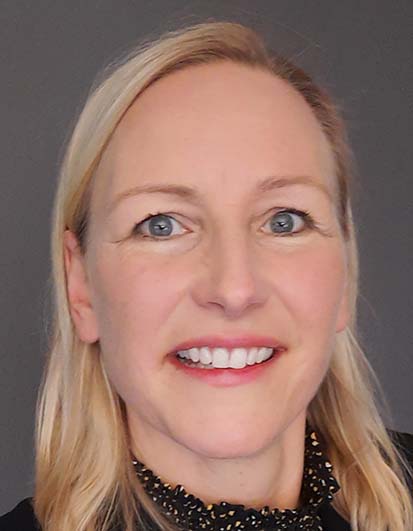
- 2001 Dental prophylaxis, specialist and administrative assistant
- 2009 Health and social economist (VWA)
- Since 2017 Company health management project in the ZA practice
- Relaxation trainer and PMR course instructor training
- 2020 Stress management trainer
- 2020 Resilience trainer
- 2021 Teaching in adult education (VHS)
- 2022 Expert for tooth-friendly nutrition (Zahnfreundlich e. V.)
- Practical experience for over 20 years
- Lectures and team workshops for over 4 years
- Seminars and individual practice coaching with a focus on: prophylaxis in theory and practice; communication; practice management; fee management; consulting
Is there something or is there nothing?
Common oral mucosal changes seen during prophylaxis
The aim of the course is to recognize and correctly classify oral mucosal changes and diseases. You will learn to distinguish what a normal oral mucosa is and what you need to look out for and what you need to do if there are any abnormalities.
register now!Common oral mucosal changes seen during prophylaxis
The aim of the course is to recognize and correctly classify oral mucosal changes and diseases. You will learn to distinguish what a normal oral mucosa is and what you need to look out for and what you need to do if there are any abnormalities.
FZÄ Melanie Maus

- 1998 – 2001 Apprenticeship as IT systems administrator
- 2001 – 2002 Commercial employee
- 2002 – 2014 System administrator
- 2012 – 2014 Student assistant, Charité Berlin
- 2014 – 2015 Preparatory assistant in dental practice
- 2015 – 2018 Dentist
- 2018 – 2022 Medical Adviser
- 2018 – 2022 Specialist dentist for oral surgery/senior physician
Fissure sealing – how do we do it right?
From the basics…
- On which guideline is it based?
- On which material technology theories is it based?
- When should it be used and when not?
- What materials are available and when and how can they be used sensibly?
- Do I always need a cofferdam?
…through to practical implementation.
register now!
From the basics…
- On which guideline is it based?
- On which material technology theories is it based?
- When should it be used and when not?
- What materials are available and when and how can they be used sensibly?
- Do I always need a cofferdam?
…through to practical implementation.
Dr. med. dent. Patrick Mohr

- Study of dentistry and doctorate in Marburg
- 3 years as a preparatory assistant in 2 practices in Hanover
- Over 25 years in own practice near Hamburg with dedicated prophylaxis department (active until the end of 2023)
- Employee and consultant at the Philipp Pfaff Institute from the end of 2023
Periodontitis treatment course – structure, content and goal!
A long-distance run for the entire practice team
The treatment of periodontitis patients according to current guidelines is complex and requires patience on the part of patients and dentists. In order to preserve patients’ own teeth and quality of life in the long term, the cooperation of the entire practice team is required: dental nurses, dental hygienists, dental hygienists and dentists – a clear distribution of tasks enables success!
register now!
A long-distance run for the entire practice team
The treatment of periodontitis patients according to current guidelines is complex and requires patience on the part of patients and dentists. In order to preserve patients’ own teeth and quality of life in the long term, the cooperation of the entire practice team is required: dental nurses, dental hygienists, dental hygienists and dentists – a clear distribution of tasks enables success!
Dr. Nina Werner

- 1999 – 2004 Studied dentistry at the Humboldt University of Berlin
- 2004 License to practice medicine
- 2015 Promotion
- 2005 – 2012 General dental practice, also in own practice in Berlin
- 2013 – 2024 Clinical Director at the Philipp Pfaff Institute
Oral hygiene aids – you can’t do without them!
Individual instead of 0-8-15!
Tips and tricks for the correct selection and use of oral hygiene aids are provided.
Using case studies, we demonstrate what is really important for you as a practitioner and your patients – before, during and after professional tooth cleaning.
register now!Individual instead of 0-8-15!
Tips and tricks for the correct selection and use of oral hygiene aids are provided.
Using case studies, we demonstrate what is really important for you as a practitioner and your patients – before, during and after professional tooth cleaning.
FZP Stefanie Röder

- 2004 – 2007 Training as a ZFA, Berlin
- 2008 Further training in the reprocessing of medical devices
- 2010 – 2011 Further training as a dental administrative assistant (ZMV), Berlin
- 2012 Further training to become a dental prophylaxis assistant (ZMP), Berlin
- 2016 – 2017 Further training as a specialist in dental practice management (FZP), Berlin
- Since 2018 Lecturer in the areas of hygiene, practice organization, quality management, private billing
- 2023 IHK certified specialist in health and social services
Dentist Ellen Oberhoff

- 1983-1988 Studied dentistry at the Charité
- 1988 – 1989 Start of specialist training in pediatric dentistry
- 1990 – 2004 Worked as a dentist in Berlin
- 2005 – 2018 Establishment in a joint dental practice
- Since 2021, course supervision and practical instructor in the advanced training course for dental hygienists and in the preparatory course for the knowledge test for immigrant dentists at PPI
FU and IP – the goal is oral health – together we are successful!
Implementation in everyday practice
When dealing with children, we also need communication skills that go beyond professional expertise. These “soft” skills are referred to as soft skills. They describe personal skills and attitudes that have a positive influence on the behavior of young patients and motivate them.
In addition, preventive practice concepts are needed that are based on scientific evidence and can be easily implemented in everyday practice.
You can look forward to many inspirations and practical examples for your child prophylaxis, e.g:
- Dental screening examinations and individual prophylaxis measures
- Sealing of fissures
Implementation in everyday practice
When dealing with children, we also need communication skills that go beyond professional expertise. These “soft” skills are referred to as soft skills. They describe personal skills and attitudes that have a positive influence on the behavior of young patients and motivate them.
In addition, preventive practice concepts are needed that are based on scientific evidence and can be easily implemented in everyday practice.
You can look forward to many inspirations and practical examples for your child prophylaxis, e.g:
- Sealing of fissures
- Dental screening examinations and individual prophylaxis measures
DH Nicole Graw

- 1994 – 1997 Training as a ZFA
- 2000 – 2002 Further training as ZMF (eazf Munich)
- 2010 – 2011 Training as a business trainer and coach (V.I.E.L. Coaching)
- 2015 – 2016 Further training as a dental hygienist (NFI Hamburg)
- 2017 NLP Master (DVNLP)
- Since 2014 additional training in communication psychology with Prof. Schulz von Thun
- 2017 – 2021 Teaching and clinical supervision as part of the advanced training to become a ZMP and DH (advanced training institute of the ZÄK Bremen)
- 2018 Further training as a social media manager (IHK)
- Since 2018 Practice management of Zahnärzte Mühlenkamp, foundation of Zahnarzt auf Rädern
- 2020 – 2021 Systemic management training (Coachingakademie Hamburg)
- 2022- 2023 Dental Business Administrator (German Academy for Continuing Education in the Healthcare Sector)
- Since 2023 Teaching as part of the advanced training for DH (NFI Hamburg)
- 2024 – 2025 Business economist for dental billing
- Many years of experience as a speaker and trainer
Prophylaxis for MIH patients
In this workshop, the clinical appearance of molar incisor hypomineralization (MIH) and possible prophylactic measures will be discussed.
MIH has been on our radar more and more in recent years. As part of the routine examination of children with mixed dentition and their prophylaxis, MIH with its possible hypersensitivity presents us with a challenge. The prophylaxis measures with necessary desensitization of the teeth and their impaired enamel surface are also limited. Non-invasive cleaning measures are presented, taking into account existing opacities and the possibility of partial fissure sealing of the first permanent MIH molars.
Participants should after the end of the workshop:
- Know the general clinical presentation of MIH.
- Understanding the desensitization of MIH teeth.
- Master the differentiation of MIH opacities.
- Know non-invasive prophylaxis options.
- Partial fissure sealing can be compared to classic fissure sealing.
In this workshop, the clinical appearance of molar incisor hypomineralization (MIH) and possible prophylactic measures will be discussed.
MIH has been on our radar more and more in recent years. As part of the routine examination of children with mixed dentition and their prophylaxis, MIH with its possible hypersensitivity presents us with a challenge. The prophylaxis measures with necessary desensitization of the teeth and their impaired enamel surface are also limited. Non-invasive cleaning measures are presented, taking into account existing opacities and the possibility of partial fissure sealing of the first permanent MIH molars.
Participants should after the end of the workshop:
- Know the general clinical presentation of MIH.
- Understanding the desensitization of MIH teeth.
- Master the differentiation of MIH opacities.
- Know non-invasive prophylaxis options.
- Partial fissure sealing can be compared to classic fissure sealing.
M.-Salim Doueiri

- 1998 – 2002 Study of Biotechnology, Technical University of Applied Sciences Berlin, Degree: Dipl.-Ing.
- 2002 – 2007 Research Specialist at the University of Illinois, Chicago, USA
- 2014 – 2009 Studied dentistry, Charité-Universitätsmedizin Berlin
- 2015 – 2016 Assistant dentist Dentarts practice & Essink practice
- 2016 – 2021 Research Associate, Charité-Universitätsmedizin Berlin, Department of Orthodontics, Orthodontics and Pediatric Dentistry. Work & research focus on classical paediatric dentistry and treatment of children with molar incisor hypomineralization
- 2021 – 2022 Freelance pediatric dentist in the MVZ (dental center in Berlin) and in the joint practice Dr. Meyer & Prof. Dr. Preißner
- Since 2022 practice owner of MIH-Zentrum-Berlin with a focus on classic pediatric dentistry and treatment of children with MIH
Reimbursement of prophylaxis services – what is possible?
This workshop teaches participants how to document prophylaxis services correctly and completely in order to meet both the medical requirements and the specifications of private health insurance companies (PKV). Another focus is on dealing with reimbursement problems. Practical examples are used to illustrate and apply the content learned.
- Basics of the documentation of prophylaxis services
- Avoidance of frequent documentation errors
- Procedures for reimbursement problems
- Sample letter
This workshop teaches participants how to document prophylaxis services correctly and completely in order to meet both the medical requirements and the specifications of private health insurance companies (PKV). Another focus is on dealing with reimbursement problems. Practical examples are used to illustrate and apply the content learned.
- Basics of the documentation of prophylaxis services
- Avoidance of frequent documentation errors
- Procedures for reimbursement problems
- Sample letter
ZMV Emine Parlak

- Dental administrative assistant and practice manager
- Years of experience from various dental practices
- Since 2015 at the Charité Centrum Universitätsmedizin-Berlin for Dentistry, Oral and Maxillofacial Medicine
- Currently Head of the Revenue and Cost Management department
- Consultant in various areas of dental billing and member of the examination board for dental assistants and dental administrative assistants of the ZÄK Berlin
Motivating in prophylaxis – marathon or short distance
The course is dedicated to the role of the prophylaxis professional as an ongoing motivator and coach for patients. The focus is on techniques for effective oral hygiene instruction and training of patients to ensure their long-term oral health. Participants will learn how to guide their patients towards regular and thorough oral care through targeted motivation.
The course teaches practical methods for providing patients with individualized care and continuously monitoring their progress. Psychological approaches to motivation are discussed as well as practical exercises to improve oral hygiene. Participants learn how they can use positive reinforcement and constructive feedback to have a lasting influence on their patients’ behavior.
Another focus is on communication and building a trusting patient relationship. The aim is to strengthen prophylaxis specialists in their role as “personal trainers” and to provide them with tools to motivate their patients to maintain continuous and effective oral hygiene.
register now!The course is dedicated to the role of the prophylaxis professional as an ongoing motivator and coach for patients. The focus is on techniques for effective oral hygiene instruction and training of patients to ensure their long-term oral health. Participants will learn how to guide their patients towards regular and thorough oral care through targeted motivation.
The course teaches practical methods for providing patients with individualized care and continuously monitoring their progress. Psychological approaches to motivation are discussed as well as practical exercises to improve oral hygiene. Participants learn how they can use positive reinforcement and constructive feedback to have a lasting influence on their patients’ behavior.
Another focus is on communication and building a trusting patient relationship. The aim is to strengthen prophylaxis specialists in their role as “personal trainers” and to provide them with tools to motivate their patients to maintain continuous and effective oral hygiene.
ZMF Stefanie Kurzschenkel

- 2001 Dental prophylaxis, specialist and administrative assistant
- 2009 Health and social economist (VWA)
- Since 2017 Company health management project in the ZA practice
- Relaxation trainer and PMR course instructor training
- 2020 Stress management trainer
- 2020 Resilience trainer
- 2021 Teaching in adult education (VHS)
- 2022 Expert for tooth-friendly nutrition (Zahnfreundlich e. V.)
- Practical experience for over 20 years
- Lectures and team workshops for over 4 years
- Seminars and individual practice coaching with a focus on: prophylaxis in theory and practice; communication; practice management; fee management; consulting
You can book a maximum of 6 workshops (minimum 2 workshops). A workshop lasts 1 hour.
Venue

DoubleTree by Hilton Berlin Ku’damm
Los-Angeles-Platz 1, 10789 Berlin
Route planner (GoogleMaps) (external link)
Your contact person
Maria Voigt
E-Mail
Tel. 0157 30223328












